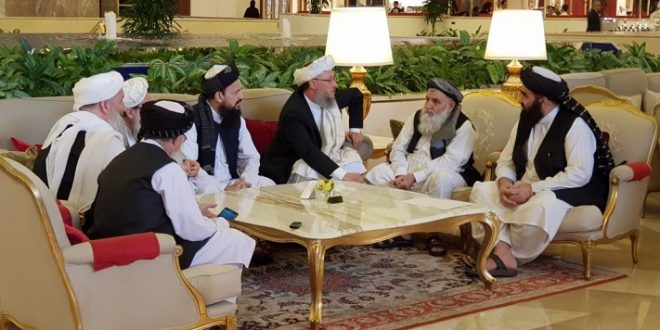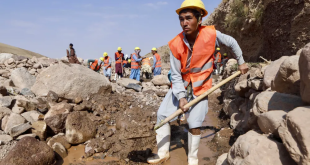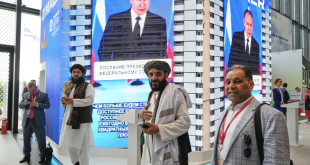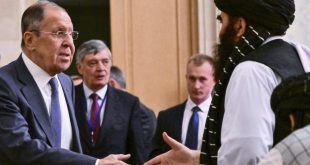With the announcement of Indian Government to strip Kashmir region of its special status on 5 August 2019, under which the Muslim majority State was constitutionally allowed to make its own laws except defence, foreign affairs and finance, the so called insurgent groups – including Taliban – have dramatically increased attacks on civilians and public places in Kabul and other provinces in Afghanistan. In addition, Mr. Shahbaz Sharif, leader of opposition in Pakistani parliament argued a couple of days ago that Government of Nawaz Sharif had intermingled the issue of Kashmir with Afghanistan, meaning, if the international community wants peace and stability in Afghanistan, they had to fix the issue of Kashmir as well. As if it wasn’t enough, the highest office holder in Pakistan – Imran Khan, the Prime Minister – has publicly issued dire warnings of increased suicide bombings of the kind carried out by terrorist groups in Pulwama, Kashmir region in India. These facts and figures indicate dangerous undercurrent in the process of ongoing peace negotiations in Doha, Qatar. The under current is the nexus that Taliban still have with Pakistan’s Inter Service Intelligence (ISI) and they can be easily mobilized and used to serve the interest of Pakistan – NOT Afghanistan. It is, therefore, incumbent on all interlocutors in the negotiation teams to watch for these pitfalls and obtain foolproof guarantee and pledges from the leaders of Taliban to put the interest of Afghanistan and the people of Afghanistan before any other counties.
It is understood that Pakistani politicians and diplomats are trying to falsely convince the world that they have ‘great influence over Taliban’ insurgents with an aim to gain more leverage and exposure at important international platforms, but the reality is that Pakistanis do not have complete influence over Taliban. Yes, they have managed to inject ISI trained religious fanatics in the ranks of Taliban fighters, but that is all they could during last almost two decades. And those renegade fighters continue to take orders from groups operating inside Pakistan – including ISI – and their actions are associated with mainstream Taliban, for example the Haqqani Group, which is an important faction within the Taliban. Such scenarios are natural outcome in a situation where countries and non-state actors with great deal of interests are trying to find their niche in the country’s future set up in order to pursue their vested interests – of course such activities are always at the cost of entire Afghan State and Afghan people. It is first and foremost the duty of Taliban to purge their ranks from such elements in order to gain the trust of Afghan people and international community.
Pakistani agenda is evolving from one direction to another right
from the beginning. They had devised a grandiose agenda in the 1980s, which was
named ‘strategic depth’ and ‘deep state’ under which the entire country should
be re-established with completed annihilation of Afghanistan’s bright generation,
its institutions and education system, and their tools were so called mujahideen
and religious teachers. When they faced bumps in the road on that line,
Pakistan supported Taliban in 1990s with specific agenda in mind: to make Afghanistan
as its
proxy State. With the passage of time, this did not work because international community persistently supported the people and Government of Afghanistan in the last two decades. Then Pakistanis tried to create a nexus between Indian Kashmir region and Afghanistan, where they touted to the Western countries – including United States of America – that ‘Kashmir issue must be settled before stability and peace returns to Afghanistan’. This was clearly evident when during the visit of Pakistan Prime Minister Imran Khan to USA, the President Trump expressed that Indian Prime Minister Modi asked him to mediate the issue of Kashmir, which India vehemently denied of any such conversation. These changes and knee-jerk reactions to the changing political, social and economic situations have exposed Pakistani lack of vision and planning as a good neighbor, and it has burned its fingers in the process. Taliban also have understood the motives of Pakistan and so, recently on 8 August 2019, Taliban spokesperson Zabihullah Mujahed said in a statement that ‘Linking the issue of Kashmir with that of Afghanistan by some parties will not aid in improving the crisis at hand because the issue of Afghanistan is not related nor should Afghanistan be turned into the theatre of competition between other countries.”
In its efforts to ward off pressure from the US and European nations, Pakistan tried to create alliance with People’s Republic of China, pinning a great hope to fill the gap created by cutting US and other international aid to that country with Chinese contribution to Pakistan economy. Though China promised fifty billion US dollar investment in Pakistan, but most of the money they would put in Pakistan would come as long-term loans. Also, China was not in hurry to put the money they promised, and this procrastination further damaged Pakistan economy, which eventually led the country to decide to put itself back in the lap of United States of America. Recent visit by the Prime Minister Imran Khan to the US has brought Pakistan back to square one, meaning they will now restart from where they left.
Though the world and people of Afghanistan are optimistic about this re-union of Pakistan with the West when it comes to Afghanistan, the worries still linger about the future of many terrorist organizations still operating in Pakistan and most often used by that country as its proxy arm to instigate upheaval, instability and destruction in countries like Afghanistan and India. Upendra Baghel, a researcher on Afghanistan says that in an environment of historical and political rivalries, social frictions, and religious and regional competing interests, the governance deficit with security vacuum may facilitate rise of criminal economic syndicates and terrorist organizations, including ISIL – KP. Government of Afghanistan, international community and regional countries should take heed of this point and push Taliban leaders to sever relations with other countries sensitive agencies and be a responsible patriotic team to contribute in the unity, reconstruction and prosperity of Afghanistan in particular and usher peace and stability in the region and the world in general.
The writer is Mohammed Gul SAHIBBZADA who is Chief Executive Officer of Kainaat Group of Companies (KGC)
 Afghanistan Times
Afghanistan Times




